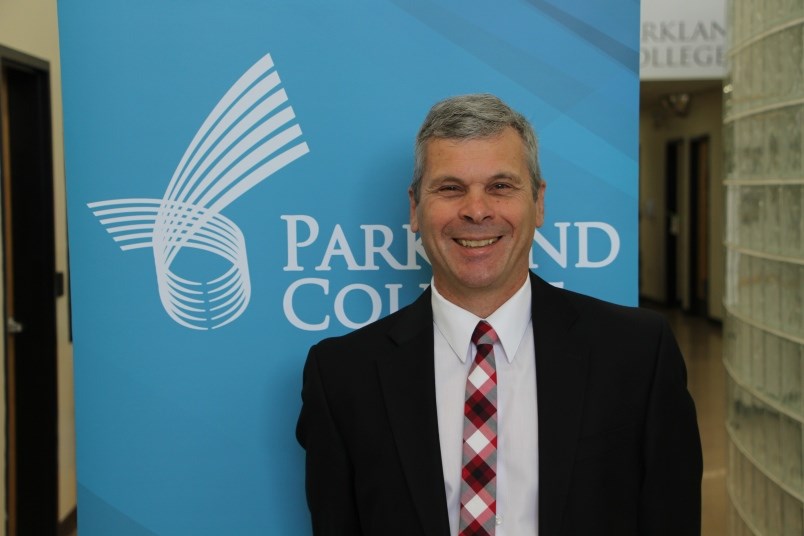The Government of Saskatchewan in partnership with post-secondary institutions have developed a multi-year funding investment that will provide funding certainty to the sector over the next four years.
The Ministry of Advanced Education has committed to stable base funding at 2020-21 levels for the duration of the agreement, along with an additional $60 million increase beyond annual operating funding over the next two years. This approach provides institutions with the ability to respond to challenges created by the pandemic, and to help grow financial sustainability over the long-term.
"For the first time ever, we're pleased to provide a multi-year funding commitment to the sector, which was developed collaboratively and is focused on shared priorities," Advanced Education Minister Gene Makowsky said in a recent release. "The pandemic has disrupted the operations of post-secondary education. This investment will help ensure programming and research remains aligned with the needs of students and Saskatchewan communities and will give institutions the ability to assist the province in achieving the goals set out in the Growth Plan.”
Mark Hoddenbagh, President and CEO for Parkland College and Cumberland College said having stable, known funding for the next four years is a very positive situation, especially when compared to what is happening in other jurisdictions.
“This is a surprise in the sense it’s not the way governments typically act,” he told Yorkton This Week. “This is a pleasant surprise.”
The key is the stability a four-year commitment allows, added Hoddenbagh. He pointed to neighbouring Alberta where there have been cuts of up to five per cent for some post-secondary funding, an amount would be “tough to swallow” by institutions which would be forced to find alternative sources of money, or make cuts that would impact students.
With the new deal is place in Saskatchewan colleges like Parkland and Cumberland can move forward with a level of assurance in terms of provincial dollars coming in, said Hoddenbagh.
As part of the commitment, every publicly funded post-secondary institution in Saskatchewan signed a Memorandum of Understanding, which outlines the shared priority areas where the additional $60 million will be targeted including: COVID-19 recovery, revenue generation, sector collaboration and achieving the strategic initiatives set out in the Growth Plan.
The $60 million is over two years, and will mean about a five per cent increase to the local colleges, said Hoddenbagh, money he said will “help us develop some of things we need to be long term sustainable,” which will be a focus moving forward.
The broader post-secondary sector is excited to continue working together to support the needs of post-secondary education in the province.
"The four-year plan is unprecedented and provides Saskatchewan post-secondary institutions stable funding in an uncertain social and economic environment," Association of Saskatchewan Regio Institute of Technologies has the tools to realize ambitious and innovative initiatives to support the economic development of Saskatchewan Indigenous peoples," Saskatchewan Indian Institute of Technologies Vice-President, Academics Tavia Laliberte said. "Stable core funding is essential to building the internal capacity to challenge and innovate. Saskatchewan Indian Institute of Technologies appreciates the support of the ministry to empower Indigenous peoples to meet our shared goal of building strong communities within this province."
"Saskatchewan Polytechnic appreciates the Government of Saskatchewan's efforts to ensure financial sustainability of the post-secondary sector through the multi-year funding," Sask Polytech President and CEO Dr. Larry Rosia said. "In addition to ensuring that the institution has the resources to plan for the fall, this approach also gives the institution stability and predictability over the next few years to meet the needs of our learners and business and industry partners."
"Gabriel Dumont Institute is extremely pleased to see a multi-year funding commitment for post-secondary institutions in this year's budget," Gabriel Dumont Institute Executive Director Geordy McCaffrey said. "The cost certainty will help us plan and deliver programs in the best way to the Métis community."
"The University of Regina welcomes the longer-term funding model the Government of Saskatchewan has introduced for the province's post-secondary sector," University of Regina Interim President and Vice-Chancellor Dr. Thomas Chase said. "Stable funding over the next four years will provide greater certainty as we move out of the pandemic, and will help us chart a course toward a more sustainable future."
nal Colleges Co-Chairs Jay Notay and Barb Derbawka-Stevenson said in the provincial release. "Through collaborative and cooperative relationships with our post-secondary partners, industry and other relevant stakeholders, the Association of Saskatchewan Regional Colleges looks forward to continuing playing a key contributing role in helping Saskatchewan achieve its economic recovery goals and objectives."
"The multi-year funding agreement is a progressive and welcomed step in these challenging times toward establishing our financial predictability in the coming years," USask President Peter Stoicheff said in the same release. "It will help ensure our success in supporting the aspirations of our students, our researchers, Saskatchewan and its citizens, and in our commitment to being the university the world needs."
"With the Ministry of Advanced Education's commitment to multi-year funding, Saskatchewan Indian




